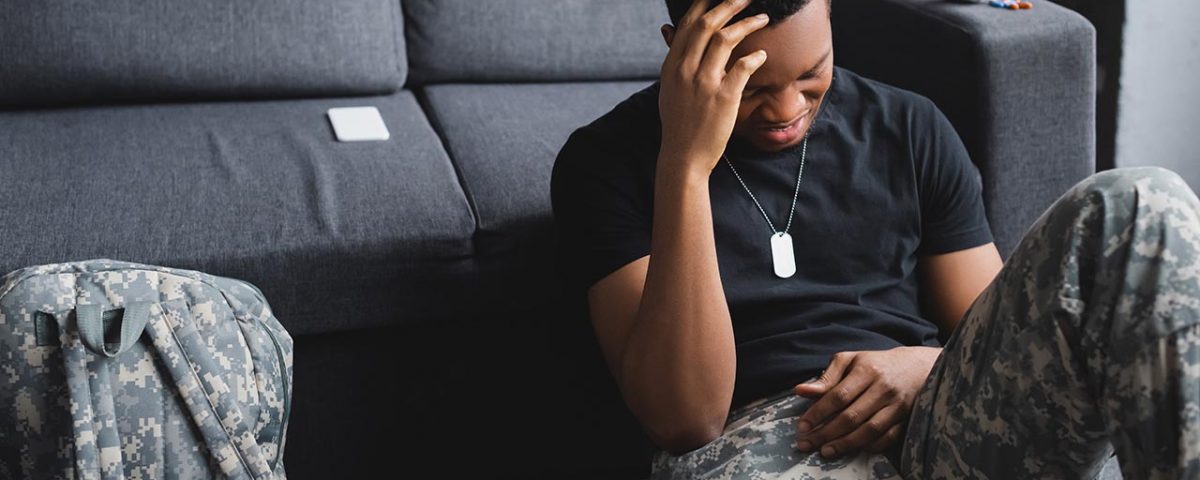People's physical and mental health may be significantly impacted by the unique hardships and duties they endure while serving in the military. Substance abuse in the military community is one of these challenges and is a serious and pressing issue. The interaction between military culture and addiction must be considered in order for prevention, intervention, and support strategies to be effective. Examining how service members' drug use experiences can both impact and be influenced by military norms and traditions, Banyan Treatment Centers Heartland delves into the complexity of military culture.
Questions about our Facilities or Programs?
Our admissions coordinators are available 24/7 to answer any questions you may have as you consider whether treatment at Banyan is right for you or your loved one.
How Does Culture Play a Role in Addiction?
Culture has a big impact on addiction because it molds people's attitudes, beliefs, and behaviors around drugs. It affects the accessibility, societal acceptability, and usage expectations of particular substances. Alcohol-related problems may be more common in some cultures since drinking alcohol may be thoroughly ingrained in social events and rituals there. The emergence of addictive behaviors can also be influenced by cultural stresses such as trauma, acculturation difficulties, and discrimination.
The way that addiction is viewed and dealt with within a community is also influenced by cultural norms. The stigma or guilt associated with addiction may prevent people from getting treatment, and cultural notions of self-control and willpower may affect how people view their own difficulties with substance use. Therefore, understanding and respecting cultural context is crucial in designing effective prevention and intervention strategies for addiction.
What Is Military Culture?
Military culture is mostly defined by discipline, duty, and camaraderie. It includes a collection of customs and beliefs taught to service members as soon as they enlist. The foundation of military life is discipline, which promotes order, accuracy, and strict obedience to laws and regulations. Duty emphasizes the constant dedication to defend one's country and fellow warriors. It is frequently defined as a holy obligation. Even in the midst of difficulty, people are motivated by a sense of duty to prioritize the demands of the team over their own.
The foundation of military culture is camaraderie, which forges friendships via the crucible of shared experiences, difficulties, and victories. These connections are more than just friendships; they create an essential network of support that is available on and off the battlefield. The culture also places a significant emphasis on hard work, respect for authority, and a deep sense of honor. These components work together to create a distinctive identity that characterizes military life and has a significant impact on the beliefs and actions of individuals who serve.
Military Culture vs. Civilian Culture
There are clear and significant differences between military culture and civilian culture. The lifestyle of the military is controlled and regimented, emphasizing hierarchy, discipline, and obedience to a rigid code of conduct. Service members work inside a clearly defined line of command, where directives are blindly followed, and a strong sense of devotion to the country is present. In contrast, civilian culture is characterized by a higher level of personal liberty and decision-making. In general, civilian life offers more freedom in terms of decision-making, employment options, and lifestyle selections.
Civilians may be guided by different values and priorities than those instilled in the military, emphasizing personal interests, financial objectives, and a variety of social experiences. As veterans make the move from a highly organized setting to one characterized by a larger degree of independence and individual decision-making, bridging the gap between these two cultures can be a considerable difficulty. It is crucial for successful integration and support of veterans transitioning to civilian life to recognize and appreciate these cultural differences.
Military Culture and Substance Abuse
Military life has special requirements and stressors, which can exacerbate an already complicated relationship with substance misuse. It's important to note, though, that the military also places a high priority on discipline and physical fitness, both of which can operate as safeguards against substance usage. However, the possibility of addiction still warrants serious concern, highlighting the significance of aggressive preventive and support initiatives within the military community.
Causes of Drug Use in the Military
The complex nature of military life exposes service members to a range of stressors and challenges that can contribute to drug use. Some of the key factors include:
- Combat exposure: During deployments, service members frequently go through stressful and severe situations that can leave them physically and mentally injured. Some people may use drugs as a form of self-medication to try to cope with these events and to dull the pain.
- Stress and pressure: High levels of stress can result from the demands of military duty, which include long hours, several deployments, and the ongoing pressure to perform at the top of one's game. To relieve this pressure and obtain short-term respite, some people may turn to narcotics.
- Peer influence: Due to the close-knit character of military groups, drug use may occasionally become accepted or even promoted in specific settings. The beginning of drug usage may be influenced by peer pressure and a desire to blend in with the group of coworkers.
- Access and availability: Service members may be exposed to circumstances where drugs may be more easily accessible or socially acceptable while serving in the military, especially during specific overseas deployments.
- Transition and reintegration: Transitioning out of the military and back into civilian life may be a very difficult process. Substance usage can be sparked by the loss of the regimented military environment as well as potential career or life-purpose challenges.
In order to establish focused preventive and intervention programs to address drug use within the military community, it is essential to understand these underlying factors. It is feasible to better support service members and veterans on their path to health and well-being by identifying and proactively addressing these concerns.
Common Military Drugs of Choice
While drug use varies among individuals and units, there are several substances that have been more commonly associated with military culture. These include:
- Alcohol: Alcohol in the military is common because of how culturally accepted and easily accessible it is. It's used for relaxation, camaraderie, and as a means to unwind after high-stress situations.
- Prescription medications: Due to the physically taxing nature of military service, prescription drugs and painkillers are occasionally sought after for wounds or persistent discomfort. These medications can cause abuse and addiction if not taken as directed.
- Stimulants: Given the need for alertness and concentration, some service members may use stimulants like amphetamines, especially during deployments or lengthy missions.
- Marijuana: Despite differing legal statuses in various countries, some military members have taken marijuana for its alleged stress-relieving effects.
- Synthetic drugs: Designer drugs, such as synthetic cannabinoids (often referred to as "Spice" or "K2"), have been used on occasion. Frequently, this is due to them being readily available and challenging to detect in drug tests.
It's crucial to remember that drug use among military personnel can vary greatly, and the majority scrupulously abide by the rules and guidelines regulating substance use. Understanding these often-used substances, however, can help you better understand the difficulties certain service members could encounter while trying to manage their physical and mental health in a military setting. With this understanding, effective prevention and support measures can be created.
Getting into treatment is easy with our free insurance verification
"*" indicates required fields
Veterans in Recovery at Our Heartland Treatment Center
At our Illinois drug rehab, we have a strong commitment to the welfare and healing of the veterans of our country. Through our specialized Veterans Program, we recognize the unique challenges faced by those who have served, and we provide a tailored approach that acknowledges the intricacies of military culture and its impact on addiction. Here, we have seen the remarkable fortitude and power of soldiers on their paths to rehabilitation. In addition to addressing the intricacies of substance use disorders, our all-inclusive and compassionate care is created to respect the sacrifices made by those who receive it.
Call Banyan at 888-280-4763 to learn more about what our Illinois rehabs can offer to veterans, civilians, or anyone faced with an addiction.









